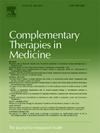Comparing the effects of different non-pharmacological traditional Chinese medicine therapies on cancer survivors: A Bayesian Network Meta-analysis
IF 3.5
3区 医学
Q1 INTEGRATIVE & COMPLEMENTARY MEDICINE
引用次数: 0
Abstract
Objectives
Several studies have demonstrated the positive impact of non-pharmacological Traditional Chinese Medicine (TCM) therapies on pain, fatigue, sleep quality, and quality of life in cancer survivors. However, no research has compared the effectiveness of these therapies. This study aims to compare various interventions and identify the most effective non-pharmacological TCM therapies to provide evidence-based recommendations for cancer survivors.
Methods
A systematic search was conducted in PubMed, Embase, Web of Science, CNKI, and Wanfang Data. RCTs investigating the effects of Taichi, Qigong, acupuncture, acupressure, TCM emotional therapy, and mixed therapies as interventions for cancer survivors were screened was conducted. Data from the creation of the database to February 2025 were included. Two independent reviewers evaluated the study quality. A Bayesian Network Meta-analysis was conducted to carry out a random effects model.
Results
Seventy-one RCTs involving 6473 patients were included in the analysis. Network meta-analysis showed significance for all five intervention therapies in pain control in cancer patients. The best efficacy was observed for acupressure (SMD=-1.1 [-1.55, −0.66]) and Taichi/Qigong (SMD=-1.08[-1.64, −0.53]), followed by TCM emotional therapy (SMD=-0.93 [-1.42, −0.44]) and acupuncture (SMD=-0.54 [-0.93, −0.15]), with the latter showing comparatively lower efficacy. None of the interventions demonstrated superior efficacy in improving fatigue compared to the control group. Mixed therapies (SMD=-1.36[-2.56, −0.28]) demonstrated the greatest effect in improving sleep quality. Taichi/Qigong (SMD=1.87 [0.96, 2.83]) demonstrated certain advantages in improving quality of life. However, acupuncture and TCM emotional therapy had no significant effect on sleep quality or overall quality of life.
Conclusion
The evidence from this study suggests that acupressure and Taichi/Qigong are recommended as the most effective therapies for pain relief and quality of life improvement, respectively. The efficacy of these therapies for fatigue remains inconclusive. However, due to the limited number of included studies and the high risk of bias, these results should be interpreted with caution. Future studies should include more rigorously designed high-quality randomized controlled trials to confirm their long-term efficacy and safety.
Registration
PROSPERO CRD42024601976
比较不同非药物中药治疗对癌症幸存者的影响:贝叶斯网络meta分析
一些研究已经证明了非药物中药治疗对癌症幸存者的疼痛、疲劳、睡眠质量和生活质量的积极影响。然而,没有研究比较过这些疗法的有效性。本研究旨在比较各种干预措施,确定最有效的非药物中医疗法,为癌症幸存者提供循证建议。方法系统检索PubMed、Embase、Web of Science、CNKI、万方数据。筛选了太极拳、气功、针灸、指压、中医情绪疗法和混合疗法对癌症幸存者的干预效果的随机对照试验。包括了从建立数据库到2025年2月的数据。两名独立评审员对研究质量进行了评估。采用贝叶斯网络元分析方法建立随机效应模型。结果纳入71项随机对照试验,共6473例患者。网络荟萃分析显示,所有五种干预疗法对癌症患者疼痛控制均有显著意义。穴位按压(SMD=-1.1[-1.55, - 0.66])和太极气功(SMD=-1.08[-1.64, - 0.53])疗效最佳,其次为中医情绪疗法(SMD=-0.93[-1.42, - 0.44])和针灸(SMD=-0.54[-0.93, - 0.15]),后者疗效较低。与对照组相比,没有一种干预措施在改善疲劳方面表现出优越的疗效。混合疗法(SMD=-1.36[-2.56, - 0.28])在改善睡眠质量方面效果最大。太极/气功(SMD=1.87[0.96, 2.83])在改善生活质量方面有一定优势。然而,针灸和中医情绪疗法对睡眠质量和整体生活质量没有显著影响。结论穴位按压和太极/气功分别是缓解疼痛和改善生活质量最有效的治疗方法。这些治疗疲劳的方法是否有效尚无定论。然而,由于纳入的研究数量有限,偏倚风险高,这些结果应谨慎解释。未来的研究应包括更严格设计的高质量随机对照试验,以确认其长期疗效和安全性。RegistrationPROSPERO CRD42024601976
本文章由计算机程序翻译,如有差异,请以英文原文为准。
求助全文
约1分钟内获得全文
求助全文
来源期刊

Complementary therapies in medicine
医学-全科医学与补充医学
CiteScore
8.60
自引率
2.80%
发文量
101
审稿时长
112 days
期刊介绍:
Complementary Therapies in Medicine is an international, peer-reviewed journal that has considerable appeal to anyone who seeks objective and critical information on complementary therapies or who wishes to deepen their understanding of these approaches. It will be of particular interest to healthcare practitioners including family practitioners, complementary therapists, nurses, and physiotherapists; to academics including social scientists and CAM researchers; to healthcare managers; and to patients. Complementary Therapies in Medicine aims to publish valid, relevant and rigorous research and serious discussion articles with the main purpose of improving healthcare.
 求助内容:
求助内容: 应助结果提醒方式:
应助结果提醒方式:


